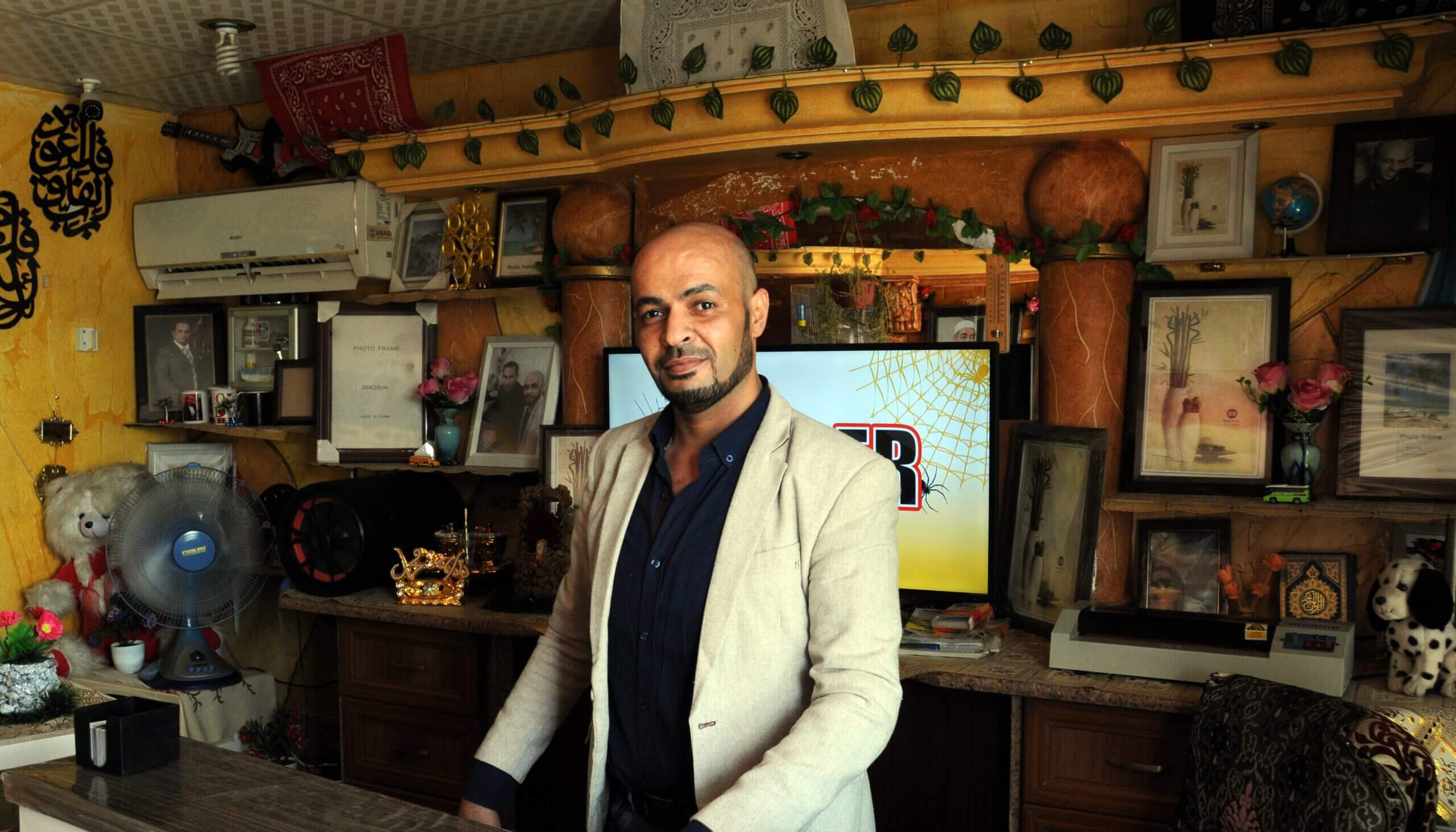
The Near East Foundation (NEF) has worked continuously in Jordan since 1937, focused on vocational training, micro-finance, and rural development. With more than 200 local community group connections, we understand that strong partnerships are key to progress. When we set out to launch a community revolving loan fund in Jordan in 2019, we knew that finding the right partners would be essential. Together with trusted civil society organizations such as the Azraq Women Productive Cooperative Association, we are extending access to capital for small business owners previously locked out of such opportunities.
Thamer Saleh Abu Tayeh is a photographer and small business owner in Azraq, Jordan. After studying photography at university and working in established studios to build his skills, Thamer struck out on his own in 2008. His wife Shireen helps him in the studio after her shifts at the factory, drawing on the knowledge she gained from her father, himself a professional photographer. Together, Thamer and Shireen are raising three girls and a boy.
As Thamer’s business has grown so too have his aspirations. For several years, he has wanted to grow his business but has lacked access to capital. Thamer was unable to take a traditional or micro-finance loan with interest, because such things are considered haram or forbidden by his faith. He also didn’t want to burden family and friends by asking for a personal loan.
In late 2019, Thamer saw a Facebook advertisement from Azraq Women Productive Cooperative Association promoting the NEF Community Revolving Loan Fund. He went to the association and spoke with its president, Ms. Samia Al Balous, who told him there would be no interest on the loan, just an administrative fee. This was the opportunity he had been hoping for.
After participating in a five-day business training and working with staff to develop a plan for his business expansion, Thamer received a 2,000 JD (~2,800 USD) loan. He used the money to update his equipment, buying modern cameras and lenses, and investing in new DJ equipment for events.
Like so many small business owners, Thamer was impacted by shutdowns related to the COVID-19 pandemic: considered nonessential, photography businesses were some of the last to reopen. And the events he was typically hired for all but disappeared. Thamer didn’t work for the whole month of May and into June. Then, in July, the situation began to improve, as customers returned, many requesting personal photos for use in official government documents.
Through all of the unexpected challenges in recent months, Thamer has been able to repay his loan and he has continued to meet with his NEF mentor, Futoon, by phone. Together, Futoon and Thamer review his finances and discuss how to adapt to the situation: expanding services like printing and establishing a Facebook page to market the studio to new customers. Thamer also trained two female photographers, who rent his cameras to photograph small parties, especially women’s events.
In the future, Thamer hopes to expand his services for people in the community as they interact with the government: buying a modern printer to print the needed color copies of government forms and helping people apply for government services.
NEF’s community revolving loan fund is supported by the Elsa and Peter Soderberg Foundation. As Thamer repays his loan, alongside the fund’s initial cohort of more than 60 borrowers, additional capital will become available for future loans to promising entrepreneurs. The revolving loan fund is designed to be a sustainable, community-led alternative to help meet the demand for business financing among marginalized small entrepreneurs who are often deterred or excluded by traditional microfinance channels. NEF’s unique approach strengthens trusted local organizations’ ability to provide this critical access to finance and is complemented by non-financial services that build entrepreneurs’ skills, confidence, and networks through training, coaching, mentoring, and advanced tailored support.